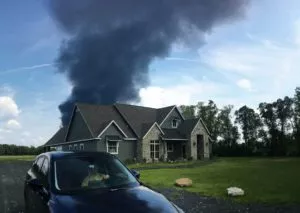
- Home
- The Firm
The Firm
- Personal Injury
Personal INjury
Airplane AccidentAirplane Bus Multi Passenger AccidentATV, Four Wheeler, and Off Road VehicleBirth InjuryBoat AccidentBrain InjuryBurn InjuryBus AccidentCatastrophic InjuryCerebral PalsyChild DeathComaCommercial Vehicle 18 Wheeler AccidentConstruction Site AccidentDangerous HighwayElectrocutionExplosion Burn Electrocution and Fire InjuryHurricane Harvey Flood And Damages ClaimJones ActLas Vegas Shooting LawsuitMaritime Law and AdmiraltyMedical MalpracticeMesotheliomaMotor Vehicle AccidentMotorcycle AccidentNursing Home AbuseOffshore and Maritime Diving AccidentOffshore InjuryOil Field AccidentPremises LiabilityProduct Defects and LiabilityRefinery AccidentSlip and FallSpinal Cord InjurySwimming Pool AccidentThird Party ClaimTrain Accident and InjuryTruck AccidentWrongful Death - Mass Torts
Mass Torts
- News
News

Astroworld Concert Lawsuit Attorney
11/06/2021Read More »HIRE A HOUSTON PERSONAL INJURY ATTORNEY withOver $800,000,000 Recovered Do You Qualify? Get Your Free Consultation Name(Required) Phone(Required)Email(Required) Did you or a loved one attend

Houston Lawyer Gets Justice For Las Vegas Shooting Victims
10/04/2019Read More »MGM Resorts International has agreed to pay up to $800 million to victims of the mass shooting in Las Vegas in 2017. 58 people’s lives

Kuraray America, Inc. Plant Explosion Injury Attorney
05/19/2018Read More »Saturday, May 19, 2018 Tragedy strikes the Pasadena Kuraray America Inc, plant with 22 individuals injured due to a preventable flash fire near Houston Texas.

Ready to Help Victims of the Arkema Explosion in Crosby, Texas
09/08/2017Read More »Photo credit: Houston Chronicle In the early morning hours of August 31, 2017, a few days after Hurricane Harvey hit the Houston area, Crosby residents
Astroworld Concert Lawsuit Attorney
A horrible tragedy has struck our community. During Travis Scott’s performance at the Astroworld Festival Concert, eight people were killed and several hundred more injured. Several of them have been taken to local hospitals for serious injuries. Several other concertgoers will feel the effects of the tragedy over the coming weeks, having witnessed the trampling of family friends and others as they narrowly escaped physical injury.
Astroworld Concert Lawsuit Attorney
11/06/2021Read More →HIRE A HOUSTON PERSONAL INJURY ATTORNEY withOver $800,000,000 Recovered Do You Qualify? Get Your Free Consultation Name(Required) Phone(Required)Email(Required) Did you or a loved one attend …
Houston Lawyer Gets Justice For Las Vegas Shooting Victims
10/04/2019MGM Resorts International has agreed to pay up to $800 million to victims of the mass shooting in Las Vegas in 2017. 58 people’s lives ...Read More →Kuraray America, Inc. Plant Explosion Injury Attorney
05/19/2018Saturday, May 19, 2018 Tragedy strikes the Pasadena Kuraray America Inc, plant with 22 individuals injured due to a preventable flash fire near Houston Texas. ...Read More →Astroworld Concert Lawsuit Attorney
HIRE A HOUSTON PERSONAL INJURY ATTORNEY withOver $800,000,000 Recovered Do You Qualify? Get Your Free Consultation Name(Required) Phone(Required)Email(Required) Did you or a loved one attend ...11/06/2021 - Contact






